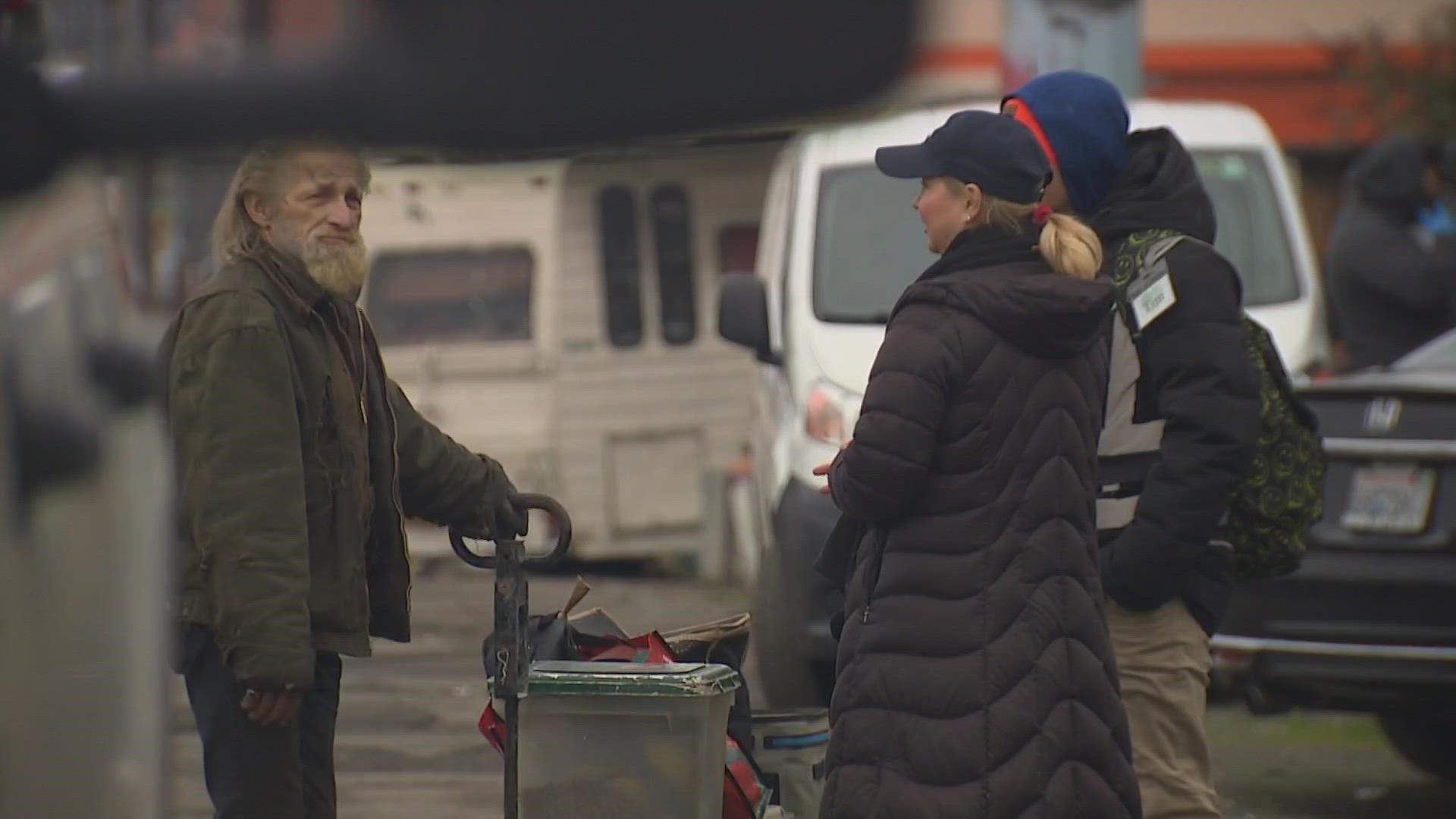SEATTLE — City public utility crews alongside Seattle police worked to clear an RV encampment in SODO.
It's a move that critics often say displaces a vulnerable population without addressing the root problem. Though for Austin Coil, Thursday’s move represents a new start.
“I haven’t really had a plan because everything is so in flux. I don’t what they’re going to come up with tomorrow,” Coil said.
Coil is in the process of moving out of an RV and into a tiny home in Seattle's Georgetown neighborhood. He’s one of five people to accept some form of shelter ahead of Thursday’s clean up. This comes after he’s lived on this street for more than three years.
Between the train horn and the stress of living on the street he hasn’t had a good night sleep in years.
“Now we’ve come back out and they’ve pushed us out again. We’re running out of places to go,” Coil continued.
Andrea Suarez, founder of the nonprofit We Heart Seattle, has seen this scenario play out again and again.
“Unfortunately, a lot of these folks were not given a tiny house. They were simply relocating Beacon Hill over to Third Avenue or really just across the street from where we're here standing,” Suarez said. “One by one by one these long-established RV camps are getting broken up."
City crews tow trailers, the trash is picked up but the problem isn’t addresses rather relocated.
For Suarez, it’s progress nonetheless.
“I think that moving people along, if they’re not willing to accept service, at least cleans the area. And even if they are going to a new area until we have safe lots or enough housing for everybody, then I think they’re a good thing,” Suarez said.
The City of Seattle said its outreach workers connected with ever person living in the encampment – notices were placed on RV’s Monday. By Thursday afternoon, Seattle Public Utility crews working to clear the piles of debris left behind.
In total, five vehicles were towed including, one boat and four cars, according to the city.
Vehicles are subject to towing if they violate the city's 72-hour parking rule – if someone is living in the vehicle, they must be provided information about assistance, but a vehicle will be towed as a “last resort.”

